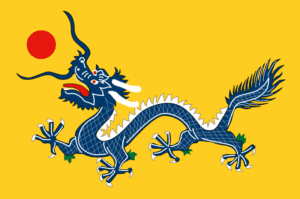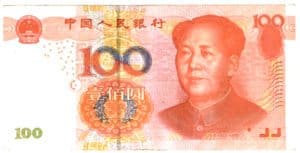 A bit late on providing this update, but back in August, the People’s Supreme Court of China issued a new ruling on matters related to private lending in China. Private lending is defined as lending between persons or entities that are not financial institutions sanctioned by financial regulators. The last time the Supreme Court issued a ruling on private lending was in 1991. The new rules issued just a few months ago will replace laws that are over two decades old.
A bit late on providing this update, but back in August, the People’s Supreme Court of China issued a new ruling on matters related to private lending in China. Private lending is defined as lending between persons or entities that are not financial institutions sanctioned by financial regulators. The last time the Supreme Court issued a ruling on private lending was in 1991. The new rules issued just a few months ago will replace laws that are over two decades old.
The new ruling focuses on how disputes in private lending cases will be handled by the judicial system and sets caps on interest rates that could be charged to the borrower in a manner similar to usury laws in the USA.
A few key points from the Supreme Court document below:
- Courts will not enforce terms of a loan contract if a lender borrowed funds from a financial institution to issue a loan at a high interest to a borrower; or if the lending entity borrowed from persons under its employment or from another company and issued a loan to a borrower for a profit; or if the lender knew prior to making the loan that the borrower would be using the funds for illegal activities.
- For loan transactions that occurred over online lending platforms where the platform solely served as an information intermediary, the court will not support lenders asking the platform to be responsible for guaranteeing the loan. However, if the platform advertised that it would provide a guarantee on the loan, then the court will support lenders in a lawsuit.
- For annual interest rates below 24%, the court shall support lenders asking borrowers for repayment of interest according to contract terms.
- For annual interest rates exceeding 36%, the portion exceeding 36% is contractually ineffective, and borrowers may claw back that portion of the interest amount paid to the lender.
- For annual interest rates between 24-36%, depending on the situation, either the lender or the borrower could receive protection in court. The court will not support a lender wishing to collect interest payments from the borrower for the portion exceeding 24%. Nor will the court support a borrower wishing to claw back the interest exceeding 24% already paid to the lender.
Prior to these specific rules on interest rates, the rule from 1991 was simply that the interest rates charged could not exceed 4x the interbank rate. After studying interbank rates posted by the central bank over the past two decades, the Supreme Court picked the median value of 6% and applied the 4x rule in line with tradition, thus fixing the maximum rate protected by the law for lenders at 24%.
 Also a fun historical fact, during the Ming and Qing Dynasties in China, interest rates were capped at 36% APR, and violations were considered criminal offenses. It is likely that the Supreme Court picked 36% as the absolute maximum in its policies in line with tradition.
Also a fun historical fact, during the Ming and Qing Dynasties in China, interest rates were capped at 36% APR, and violations were considered criminal offenses. It is likely that the Supreme Court picked 36% as the absolute maximum in its policies in line with tradition.
The obvious impact of these rules on marketplace lending platforms is that the interest rate platforms can charge borrowers is now capped at 24% APR. Any additional interest charges run the risk of not being able to be collected as the portion exceeding 24% will not be protected by law. Note that the 24% rate is inclusive of any origination or penalty fees charged to the borrower.
Previously many platforms had been charging interest and fees adding up to well over 24%, taking a large spread in the middle and passing on returns as high as 15-18% to retail investors investing in the platform. However, we have seen such returns slip to 10-12% over the past year as platforms have scaled in size, improved their underwriting procedures and lowered rates charged to borrowers. As a result, these platforms most likely will not risk exceeding the 24% barrier. However, rates and fees that are charged to borrowers are rarely transparent/fully disclosed on platforms in China.
 Acknowledging the increasingly important role of online lending platforms in today’s world, the Supreme Court specifically addressed online lending scenarios and directed one rule at platforms offering guarantees to investors. In one of my earlier regulatory roundups, I mentioned that the state council guidelines on internet finance suggested that platforms should remain intermediaries and not provide guarantees on the loans. The Supreme Court ruling here contradicts that somewhat by saying that platforms advertising guarantees (even if they do not contractually provide guarantees) will have such responsibility to the investor, which would be enforceable in court. However, with China’s new advertising laws that were also introduced over the summer, platforms are essentially barred from advertising guarantees if they are not effectively providing one in contract, which would be false advertising.
Acknowledging the increasingly important role of online lending platforms in today’s world, the Supreme Court specifically addressed online lending scenarios and directed one rule at platforms offering guarantees to investors. In one of my earlier regulatory roundups, I mentioned that the state council guidelines on internet finance suggested that platforms should remain intermediaries and not provide guarantees on the loans. The Supreme Court ruling here contradicts that somewhat by saying that platforms advertising guarantees (even if they do not contractually provide guarantees) will have such responsibility to the investor, which would be enforceable in court. However, with China’s new advertising laws that were also introduced over the summer, platforms are essentially barred from advertising guarantees if they are not effectively providing one in contract, which would be false advertising.
In summary, the Supreme Court update to the decades-old private-lending rules was a positive development for the online lending industry. Chinese laws are often quite behind the times and ambiguous to the point where they are difficult to enforce. I feel the new ruling is a great leap forward as it removes a lot of uncertainty around legal interest rates and will help weed out the hundreds of platforms that thrive on charging borrowers high-interest rates. In addition, the rules brought greater clarity to the types of transactions and contracts that would be upheld under the law and offers platforms the chance to tighten up their legal frameworks, offering increased protection to all parties involved in a transaction.
Spencer Ang Li has served as Fincera’s Vice President of Product since June 2015 and as Chief Executive Officer for Fincera’s multiple product development subsidiaries since March 2014. Prior to joining Fincera, Mr. Li was an Investment Banking Analyst at Cogent Partners in New York, a sell-side advisor for private equity secondary transactions, from 2011 to 2014. During his tenure at Cogent, Mr. Li conducted fund due diligence, managed marketing processes, and participated in the sale and transfer of nearly $2 billion in limited partnership interests on behalf of public pensions, large regional banks, asset managers, and other financial institutions. Mr. Li received a BS in Economics and BA in Psychology from Duke University in 2011.
(Editors Note: This article was previously published by Fincera and is reproduced with the express approval of the author. Fincera is a leading provider of financial services in China including commercial vehicle financing and small business lending. Fincera owns and operates two web based internet finance platforms CeraPay and CeraVest)

